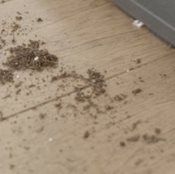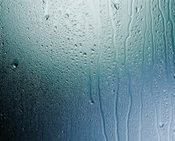The Surprising Truth: How Vacuuming Can Worsen Indoor Air Quality
 Maintaining clean indoor air is crucial for our overall health and well-being. Many of us diligently vacuum our homes to eliminate dust, allergens, and other particles that accumulate on our floors. However, it may come as a surprise to learn that vacuuming can sometimes worsen indoor air quality. In this article, we will delve into why vacuuming, if not done correctly, can adversely affect the air we breathe.
Maintaining clean indoor air is crucial for our overall health and well-being. Many of us diligently vacuum our homes to eliminate dust, allergens, and other particles that accumulate on our floors. However, it may come as a surprise to learn that vacuuming can sometimes worsen indoor air quality. In this article, we will delve into why vacuuming, if not done correctly, can adversely affect the air we breathe.
Stirring Up Dust and Allergens: Vacuuming stirs up a significant amount of dust and allergens that have settled on surfaces, carpets, and upholstery. While vacuum cleaners are designed to capture these particles, some models may need to be equipped with proper filtration systems. Consequently, vacuuming without a high-quality filter can result in the redistribution of these contaminants into the air, leading to potential respiratory issues, especially for individuals with allergies or asthma.
Ineffective Filtration: Regular maintenance and replacement are essential to ensure effective filtration, even with a well-designed filter. Over time, filters can become clogged with dirt and debris, reducing their efficiency, and allowing fine particles to escape back into the air. If not replaced or cleaned regularly, the vacuum cleaner may inadvertently become a source of air pollution instead of eliminating it.
Volatile Organic Compounds (VOCs): VOCs are harmful chemicals in many household products, such as cleaning agents, paints, and carpets. Vacuuming can agitate these VOCs, causing them to become airborne. Inadequate ventilation or low-quality vacuum cleaners may fail to capture these volatile particles, allowing them to linger in the air and potentially leading to adverse health effects, including respiratory irritation and allergic reactions.
 Mold and Moisture: Vacuuming damp or moist areas like bathrooms or basements can exacerbate indoor air quality issues. Moisture promotes the growth of mold and mildew, and vacuuming in these areas can disturb spores and spread them through the air. To prevent this, addressing underlying moisture issues and use appropriate cleaning methods for mold-prone areas.
Mold and Moisture: Vacuuming damp or moist areas like bathrooms or basements can exacerbate indoor air quality issues. Moisture promotes the growth of mold and mildew, and vacuuming in these areas can disturb spores and spread them through the air. To prevent this, addressing underlying moisture issues and use appropriate cleaning methods for mold-prone areas. While vacuuming is integral to maintaining a clean living environment, it's crucial to be mindful of its potential impact on indoor air quality. To mitigate the risks, choose vacuum cleaners with high-quality filters and maintain them regularly. Consider using HEPA (High-Efficiency Particulate Air) filters, which are specifically designed to capture tiny particles effectively. Additionally, ensure proper ventilation during vacuuming activities, and be cautious when using vacuums powered by combustion engines.
When vacuuming there are a few simple yet effective steps you can take to maintain good indoor air quality.
- Consider using an air purifier with HEPA filtration to trap tiny particles such as dust, allergens, and pet dander, ensuring they don’t get recirculated.
- Ventilate, ventilate, ventilate. Don’t forget to ventilate the room by opening doors to allow outdoor airflow.
- Use exhaust fans to help expel pollutants outside.
- Use a fresh air system that is designed to provide a continuous supply of fresh air into the home. The systems draw fresh air in, filter it, then distribute it throughout your home.
We can balance cleanliness and indoor air health by being aware of these factors.

 English
English
 English
English